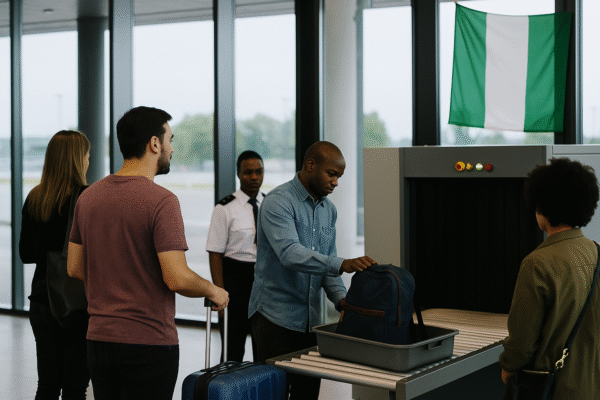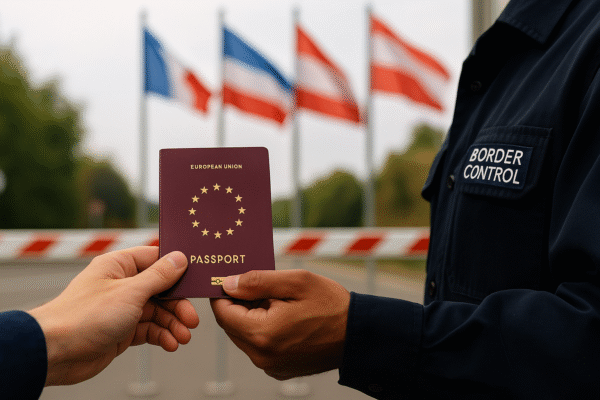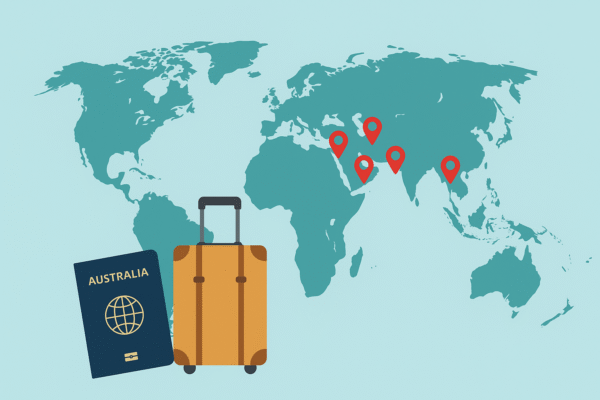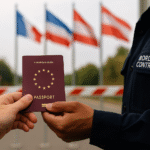The UK Foreign Office has issued a strong travel advisory for Nigeria, urging British citizens to reconsider travel plans due to escalating security concerns. The advisory emphasizes threats from terrorism, political unrest, kidnappings, and violent crime, particularly in northern and north-eastern regions. While Nigeria remains a diverse and culturally rich nation, the warning underscores that safety should be the top priority for tourists and business travelers in 2025.
Heightened Risks Across Nigeria
The advisory highlights that the risks in Nigeria are complex and unpredictable. Northern states such as Adamawa, Borno, and Yobe remain at the center of terrorist activity. Groups such as Boko Haram and Islamic State West Africa continue to operate in these areas, carrying out attacks and targeting communities. Transport hubs, places of worship, and large gatherings are particularly vulnerable, raising the threat level for both local residents and foreign visitors.
The Foreign Office has warned UK citizens to exercise extreme caution and be prepared for sudden changes in the security situation. Even in major cities such as Abuja and Kano, heightened vigilance is necessary due to the potential for unrest, violent crime, and opportunistic attacks.
Terrorism and Kidnapping Concerns
The risk of terrorism and kidnapping remains high, especially in conflict-prone regions. Foreign nationals are not always the primary targets, but they are at risk of being caught in attacks or abductions. In recent years, aid workers, business professionals, and local officials have been affected by incidents in northern Nigeria.
Travelers are urged to be particularly cautious in Maiduguri, the capital of Borno State. Security in and around the city can deteriorate rapidly, making it difficult for visitors to leave safely in an emergency. The dry season, which makes rural areas more accessible, has also increased the likelihood of attacks in remote locations.
Safe Travel Tips for UK Tourists and Business Visitors
The advisory includes clear guidance to help UK citizens reduce risks while in Nigeria.
- Stay informed: Continuously monitor local news, official government updates, and community reports.
- Avoid large gatherings: Refrain from attending political rallies, protests, or public celebrations that could escalate into violence.
- Keep emergency contacts ready: Carry embassy details and ensure friends or employers know your whereabouts.
- Travel with trusted support: Consider hiring a local guide or arranging secure transport through reputable providers.
- Plan routes carefully: Avoid road travel in high-risk regions and always choose pre-arranged, reliable transport.
- Use secure accommodation: Stay in hotels with strong security systems, preferably those known for hosting international guests.
- Prepare contingency plans: Understand evacuation procedures, particularly for business or humanitarian missions.
Impact on Tourism and Business Travel
The Foreign Office’s travel warning is expected to impact both leisure tourism and business visits to Nigeria. Holidaymakers may be discouraged from traveling to certain regions, particularly in the north-east, while foreign businesses could face challenges in relocating staff or maintaining operations in high-risk zones.
Despite these challenges, Nigeria remains an important destination for international development, humanitarian work, and economic investment. For those whose travel is essential, strict adherence to safety protocols and close coordination with local authorities are recommended.
The Growing Threat of Violence
In addition to terrorism, violent crime and opportunistic attacks present significant risks. Banditry, roadside ambushes, and kidnappings for ransom are reported in rural and semi-urban regions. Foreign visitors are encouraged to avoid unnecessary travel outside major cities and avoid traveling at night.
The Foreign Office also highlights that kidnappings may increase during the dry season, when rural regions become more accessible. Families traveling with children are urged to take additional precautions, ensuring that movements are limited and secure.
Preparing for Emergencies
UK citizens are advised to have contingency plans in place for emergencies, including medical evacuations and rapid departures from volatile areas. Employers sending staff on assignments should establish evacuation contracts with trusted service providers. Tourists should familiarize themselves with embassy hotlines, hospital locations, and local security protocols.
Travel insurance with strong emergency coverage is considered essential. Policies should include provisions for medical treatment, evacuation, and financial support in the event of disruption.
Cultural Awareness and Local Sensitivities
Beyond security, travelers are reminded to respect local customs and cultural practices. Understanding local etiquette, dress codes, and behaviors helps reduce unnecessary risks. In some regions, religious sensitivity is heightened, making respectful conduct essential.
By blending cultural awareness with safety preparedness, UK citizens can lower their risk exposure while still appreciating Nigeria’s diverse traditions, music, food, and natural landscapes.
Conclusion: Travel With Caution, Stay Informed
Nigeria offers a unique blend of vibrant cities, rich cultural heritage, and economic opportunities. However, in 2025, the risks posed by terrorism, kidnappings, and unrest remain serious enough to warrant heightened caution. The UK Foreign Office advisory urges travelers not to avoid Nigeria altogether, but to prepare thoroughly, remain alert, and adopt safe practices throughout their visit.
For those with essential reasons to travel, careful planning, reliable support, and constant vigilance are key to navigating Nigeria safely. With the right precautions, visitors can still engage with the country while minimizing exposure to danger.
For more travel news like this, keep reading Global Travel Wire
















